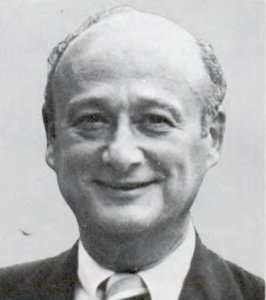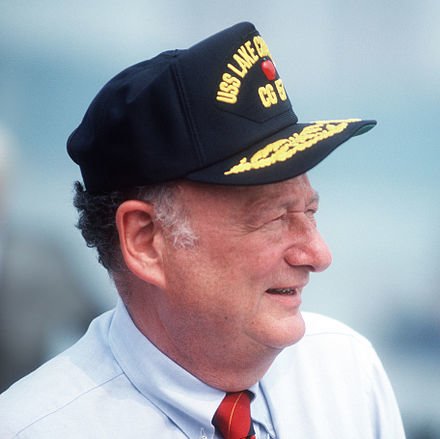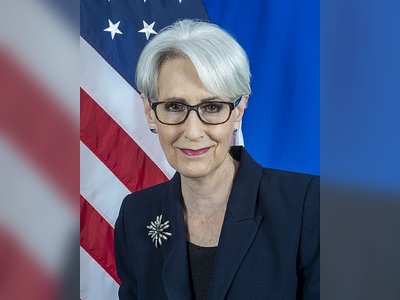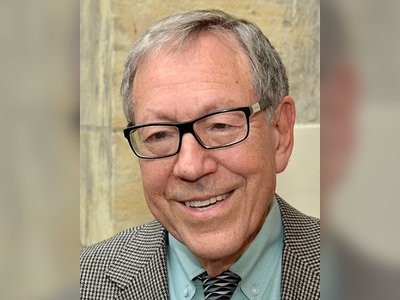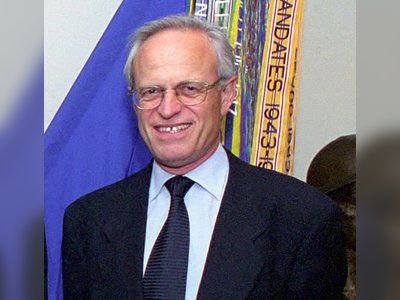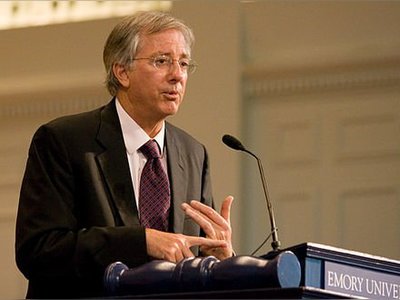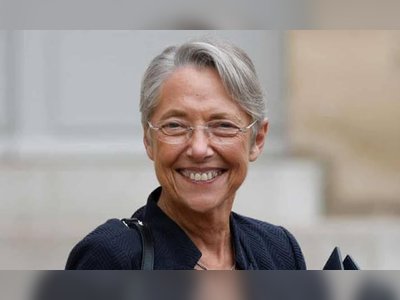מורשת גדולי האומה
בזכותם קיים
beta
Edward Irving "Ed" Koch: A Political Legacy
Edward Irving "Ed" Koch (December 12, 1924 – February 1, 2013) was a prominent Jewish-American politician, attorney, and political commentator. A member of the Democratic Party, he served as a United States Congressman representing the state of New York from 1969 to 1977 and subsequently held the position of Mayor of New York City from 1978 to 1989. As mayor, he successfully guided the city through a deep economic crisis, overseeing its transformation into a thriving metropolis. Additionally, he was involved in film criticism and served as a judge on reality television shows.
Early Life
Edward I. Koch was born on December 12, 1924, in New York City, as the second of three children to Jewish parents who had immigrated from the Austro-Hungarian Empire. His father, originally named Leib Koch, hailed from a village in eastern Galicia and changed his name to Louis Koch upon arriving in America. His mother, Yetta Silpe, was born in Kozlov, also in Galicia, and was known as Joyce in the United States. His father, who worked in the garment industry, faced financial difficulties during the Great Depression when Ed was just six years old. The family moved in with relatives in Newark, New Jersey, in 1931, returning to their own apartment in New York City about ten years later.
Koch excelled in high school and later attended City College from 1941 to 1943 before enlisting as a foot soldier in the 104th Infantry Division of the United States Army during World War II. The division was stationed in Sherbrooke, France, where Koch earned a two-star Bronze Star for valor. He was discharged in 1946 with the rank of sergeant.
After the war, Koch pursued an accelerated program at New York University School of Law, graduating in 1948, and subsequently embarked on a legal career.
Political Career
Despite a less-than-glamorous legal career, Koch began to immerse himself in the politics of the Democratic Party. He initially volunteered for Adlai Stevenson's presidential campaigns in 1952 and 1956 and later became a key aide to a reformist faction within the party known as the "Independent Democrats of Greenwich Village." As a liberal activist for civil rights and reform, Koch led the charge to unseat one of the party's old-guard leaders and influential figures in both the Democratic Party and New York, Carmine DeSapio, in 1963. Following this, he made an unsuccessful bid for the United States House of Representatives in 1966.
Two years later, in 1968, Ed Koch became the first Democrat to represent New York's 17th congressional district since the Great Depression when he won a seat in the United States House of Representatives. He was reelected four times consecutively.
During his time in the House of Representatives, Koch served on the Banking and Finance Committees, as well as the influential Appropriations Committee. He was also one of the four congressmen appointed to the Financial Control Board to oversee New York City's finances in response to the 1975 fiscal crisis.
Throughout his tenure in the House, Koch emerged as a staunch opponent of the Vietnam War and advocated for federal assistance to public transportation, national health insurance for seniors, and federal subsidies for needy families. He earned accolades from the American liberal left for his promotion of liberal democratic ideals.
Mayor of New York City
In September 1977, Ed Koch entered a seven-way Democratic primary race for the mayoralty of New York City, ultimately winning the nomination for the general election.
During the primary campaign, aides of one of his main rivals, Mario Cuomo, spread a rumor that Koch was homosexual, posting signs that read, "Vote for Cuomo, Not the Homo." Despite this smear campaign, Koch won with a significant margin of 713,000 votes to Cuomo's 587,000.
After the election, Koch vehemently denied the rumor and expressed that had he been gay, he would have had the courage to openly acknowledge it. He criticized Cuomo for propagating a rumor that stigmatized homosexuality as something to be ashamed of.
Koch managed to capture the hearts of New Yorkers by addressing pressing issues such as rising crime rates, the need for fiscal responsibility, and his ability to stand up against powerful municipal unions and interest groups.
When Koch assumed office in January 1978, New York City was teetering on the brink of financial collapse, saddled with debts exceeding one billion dollars. Through a combination of cutting exorbitant salaries, eliminating unnecessary expenses, and streamlining public services, he turned the city's budget deficit into a $500 million surplus by 1983. He staunchly resisted acceding to the demands of municipal unions as part of this struggle.
In 1981, Koch was reelected as mayor, running as both the Democratic and Republican candidate. A year later, he was convinced by publisher Rupert Murdoch to run for the office of Governor of New York in 1982. Entering the Democratic primary, he faced his previous rival, Mario Cuomo, and suffered a defeat. In an interview with Playboy magazine, he famously described life in the suburbs as "sterile" compared to rural life, which he referred to as a "joke." He also mocked truck drivers during the interview, a comment that his opponents seized upon during the primary campaign.
Koch was reelected for a third term as mayor in 1985, securing an overwhelming victory with 75% of the vote and enjoying substantial popularity among diverse ethnic groups, labor unions, and Jewish voters. Despite a reputation for strained relations with New York's African American community, he secured 37% of the Black vote in the Democratic primary compared to 40% for his African American opponent and 20% for another candidate.
Political Legacy
In 1985, Insight magazine wrote, "No mayor since Fiorello La Guardia has been loved, honored, and hated so much [at the same time] as Ed Koch." Koch once referred to a prominent female critic as a "wonderful woman, but a whore," a comment that came back to haunt him during election campaigns.
Koch was known as a passionate supporter of Israel and occasionally blended foreign policy with municipal politics in his public appearances.
His greatest achievement lay in rescuing New York City from the brink of economic disaster and leading it towards prosperity. For this reason, and others, Professor Roger Starr stated, "Mayor Koch was the most effective promoter of New York that the city ever had and often said that he wanted to be mayor for life."
In addition to his political career, Koch explored his literary talents, authoring novels such as "Murder at City Hall" (1995) and "Murder on Broadway" (1996).
Death
On February 1, 2013, at the age of 88, Ed Koch passed away at New York-Presbyterian Hospital. Before his death, he requested that his tombstone include the Hebrew verse "Sh'ma Yisrael," along with the words "My father is Jewish, my mother is Jewish, I am Jewish," the final words of American journalist Daniel Pearl before he was tragically murdered by terrorists in Pakistan in 2002.
- אד קוץ'he.wikipedia.org
